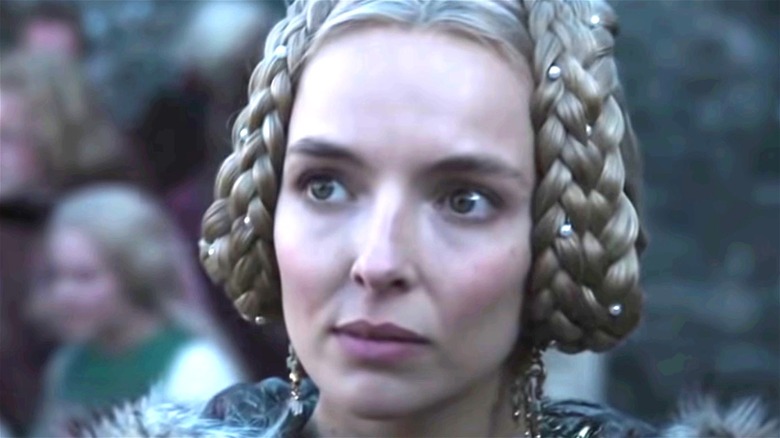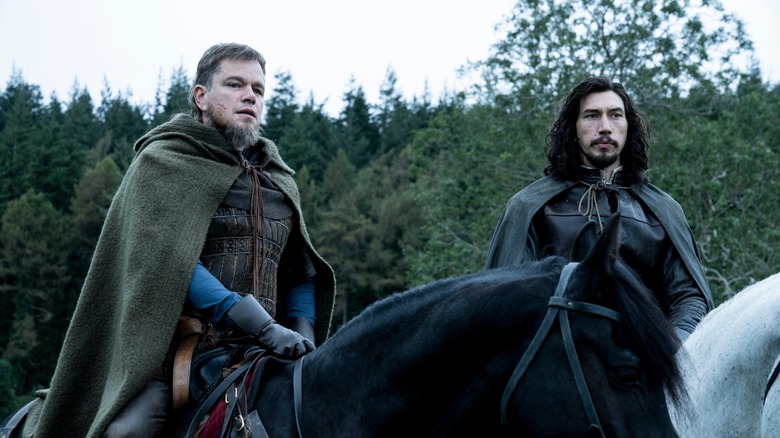The Surprising Samurai Film That Influenced Ridley Scott's The Last Duel
Renowned director Ridley Scott is finally returning to the historical drama genre with his latest film "The Last Duel." Based on true events, "The Last Duel" tells the story of the last legally sanctioned trial by combat that was allowed to take place in France. After Marguerite de Carrouges (Jodie Comer) accuses Jacques Le Gris (Adam Driver) of rape, her husband Jean de Carrouges (Matt Damon) challenges Le Gris to a duel. It's a historical event that's seemingly tailor-made for the big screen treatment, and Scott's distinct pace and style made him an obvious choice to direct.
"The Last Duel" is also notable for its reunion of Damon and Ben Affleck, the latter of whom also appears in the film. The duo, who worked together on the script for the highly acclaimed "Good Will Hunting," also penned the script here alongside Nicole Holofcener. However, the way the film unfolds is somewhat unusual in that it presents the truth of events according to each of the main three characters, all done in separate act breaks. As it turns out, the trio of screenwriters took a lot of influence from a particularly surprising samurai film classic to implement this narrative device.
The Last Duel's narrative style was inspired by Rashomon
During an interview with Collider, Matt Damon and Nicole Holofcener talked about the influence that the classic samurai film "Rashomon" had on the script-writing process. Damon confessed that it was a style he wanted to utilize before they even sat down to write the script, as he felt it would be the perfect narrative device for "The Last Duel." He also revealed that it's part of how he and Ben Affleck convinced Holofcener to come and write the film with them, with her covering the de Carrouges section of the script.
Directed by acclaimed Japanese filmmaker Akira Kurosawa, "Rashomon" is related through the eyes of an unreliable narrator — several, actually. The film relies on eyewitness accounts of a samurai's murder, and these accounts often do not align. In fact, the film was so notable for this plot device that the Rashomon effect became a term that was used to describe the unreliability of eyewitnesses in general. For a film containing subject matter as sensitive as this, it's an interesting storytelling technique for "The Last Duel" to use, and the inspiration behind it makes perfect sense.

